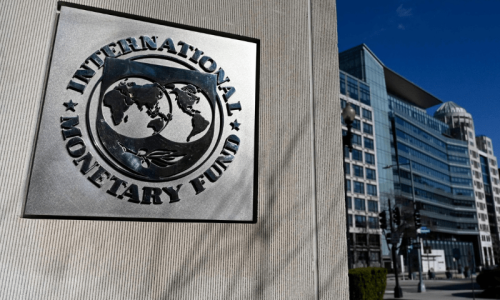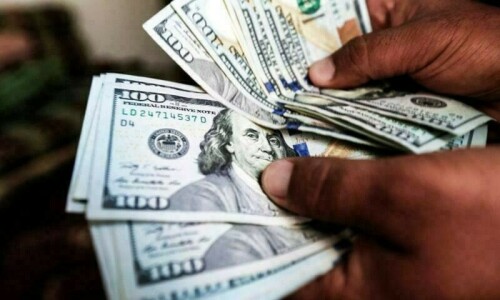KARACHI: The nation’s battle with debt repayment has intensified amid a drop in the State Bank’s foreign exchange reserves and rising political uncertainty, currency experts said.
The SBP reported on Thursday that its foreign exchange reserves fell by $44 million during the week ending Feb 16 due to debt servicing, highlighting the ongoing financial strain.
Despite an uptick in remittances in December and January, the challenge of debt repayment looms large, with the country requiring over $6 billion for foreign payments by the end of the fiscal year.
In the first half of the current fiscal year, the country dedicated $7.2bn to debt servicing, split between a $4.5bn principal amount and $2.7bn in interest.
SBP reserves fall $44m, rupee edges higher to 279.32 against US dollar
Bankers hope the formation of a new government in Islamabad in the next couple of weeks will bring stability. “Political stability is the most-needed element for economic growth,” a senior banker said, stressing that only the formation of a new government in Islamabad could solidify economic policies and stimulate growth.
Despite widespread speculation regarding the new government and its economic strategies, there is a consensus that the debt repayment crisis and a shortage of dollars will persist.
Experts predict the forthcoming administration will likely pursue the same path as the caretaker government, seeking additional loans from the International Monetary Fund (IMF). However, concerns are mounting that the State Bank’s current foreign exchange reserves, standing at $8.013bn, may be insufficient for upcoming debt servicing requirements.
“The situation may get worse in the next four months if the country fails to arrange $6bn for debt servicing,” the banker said.
Nevertheless, remittances, export proceeds and transactions through exchange companies are providing a lifeline, helping maintain the State Bank’s reserves near $8bn until the country negotiates new loans with the IMF.
The foreign exchange market remains under control thanks to stringent import regulations, but the IMF’s push for import liberalisation could threaten exchange rate stability.
Due to this exchange rate stability, the inflow of foreign exchange into the equity market remained high during the last couple of months. At the same time, the exchange companies sold $3bn to the commercial banks during the first seven months (July to January) of the current fiscal year.
Meanwhile, the State Bank reported the closing rate of the dollar in the interbank market at Rs279.32 on Thursday, with a decline of 17 paise in the dollar’s value. The open market also reported a 20-paisa decline in the dollar’s value and the trading rate was Rs282.30.
According to the SBP, the country’s total foreign exchange reserves now stand at $13.098bn, including $5.085bn held by the commercial banks.
Published in Dawn, February 23rd, 2024












































Dear visitor, the comments section is undergoing an overhaul and will return soon.